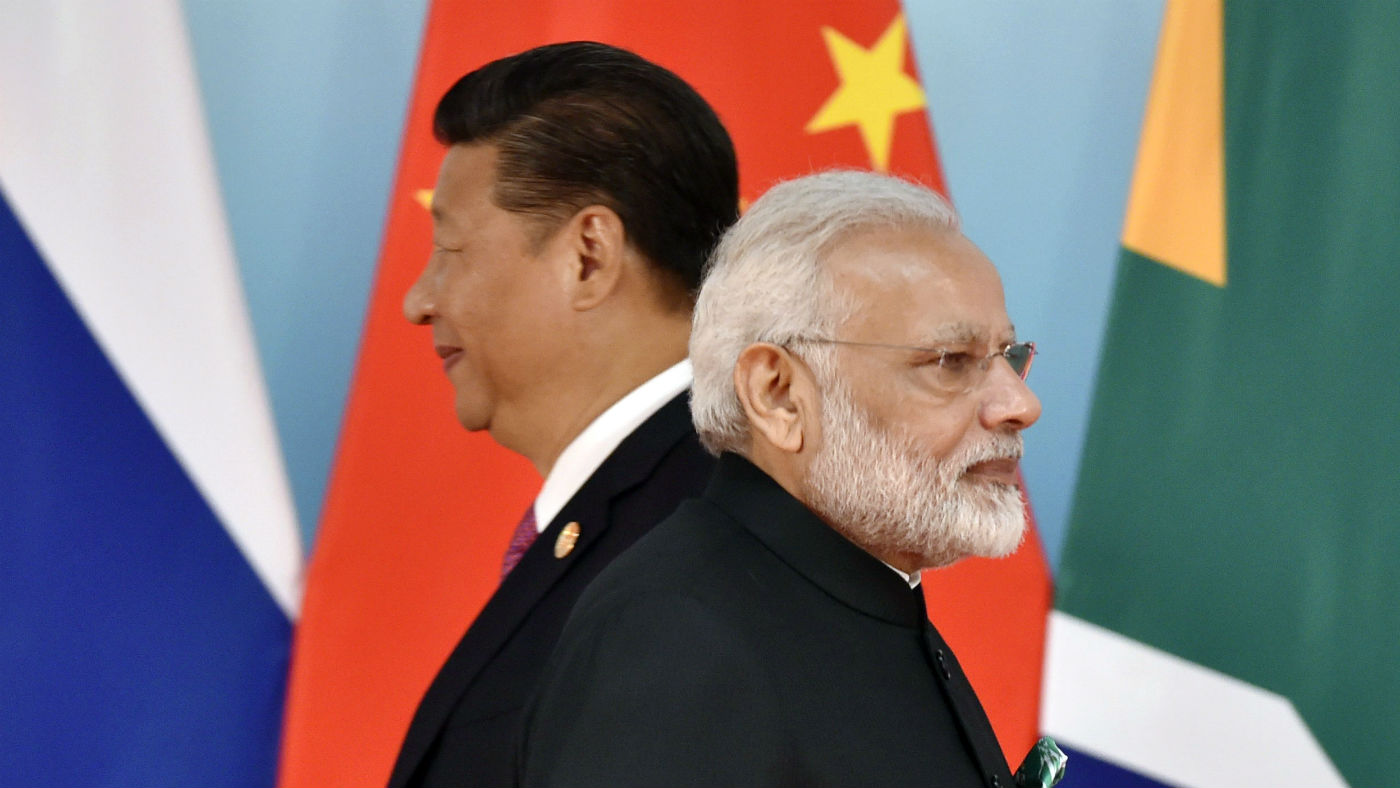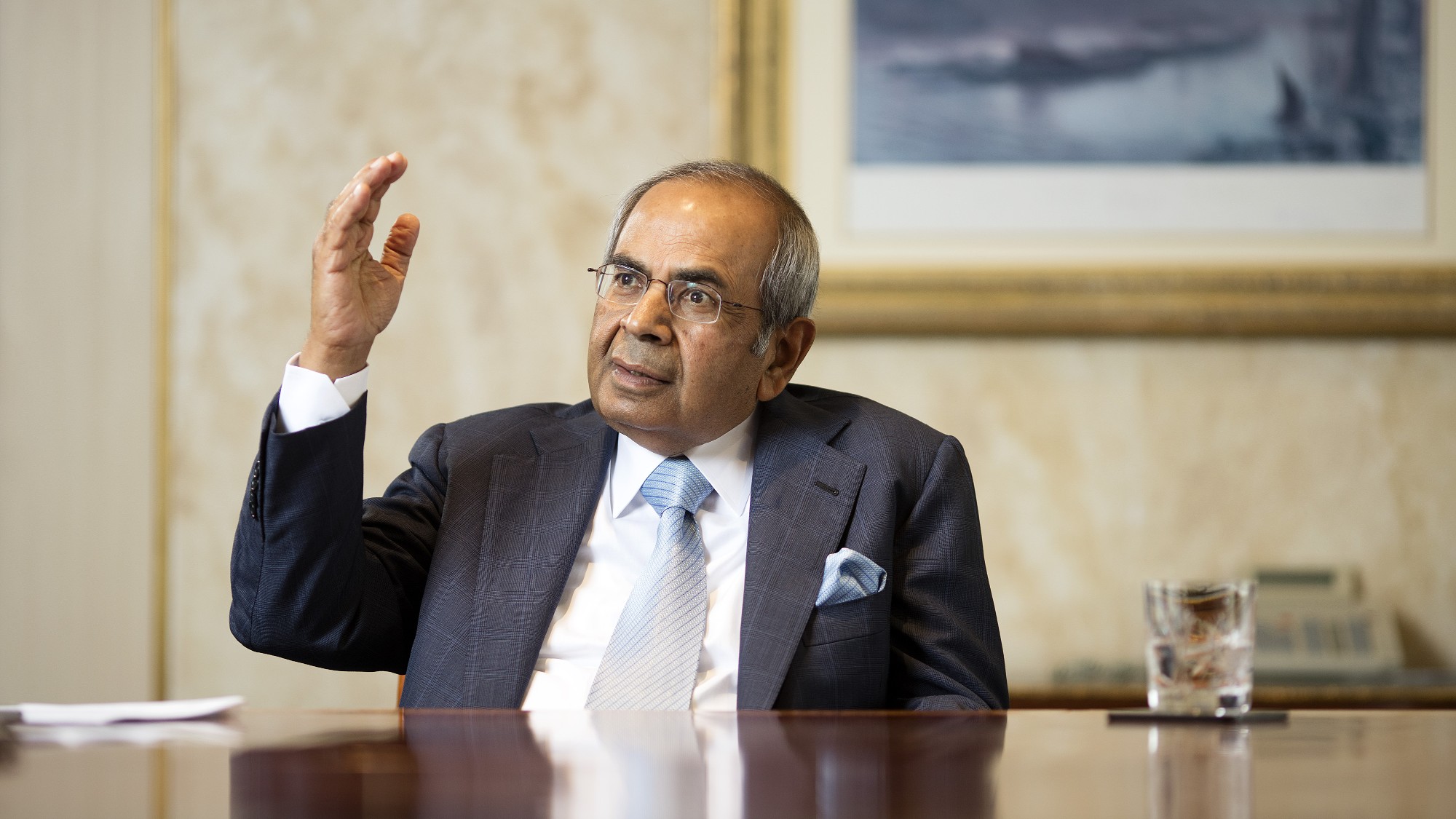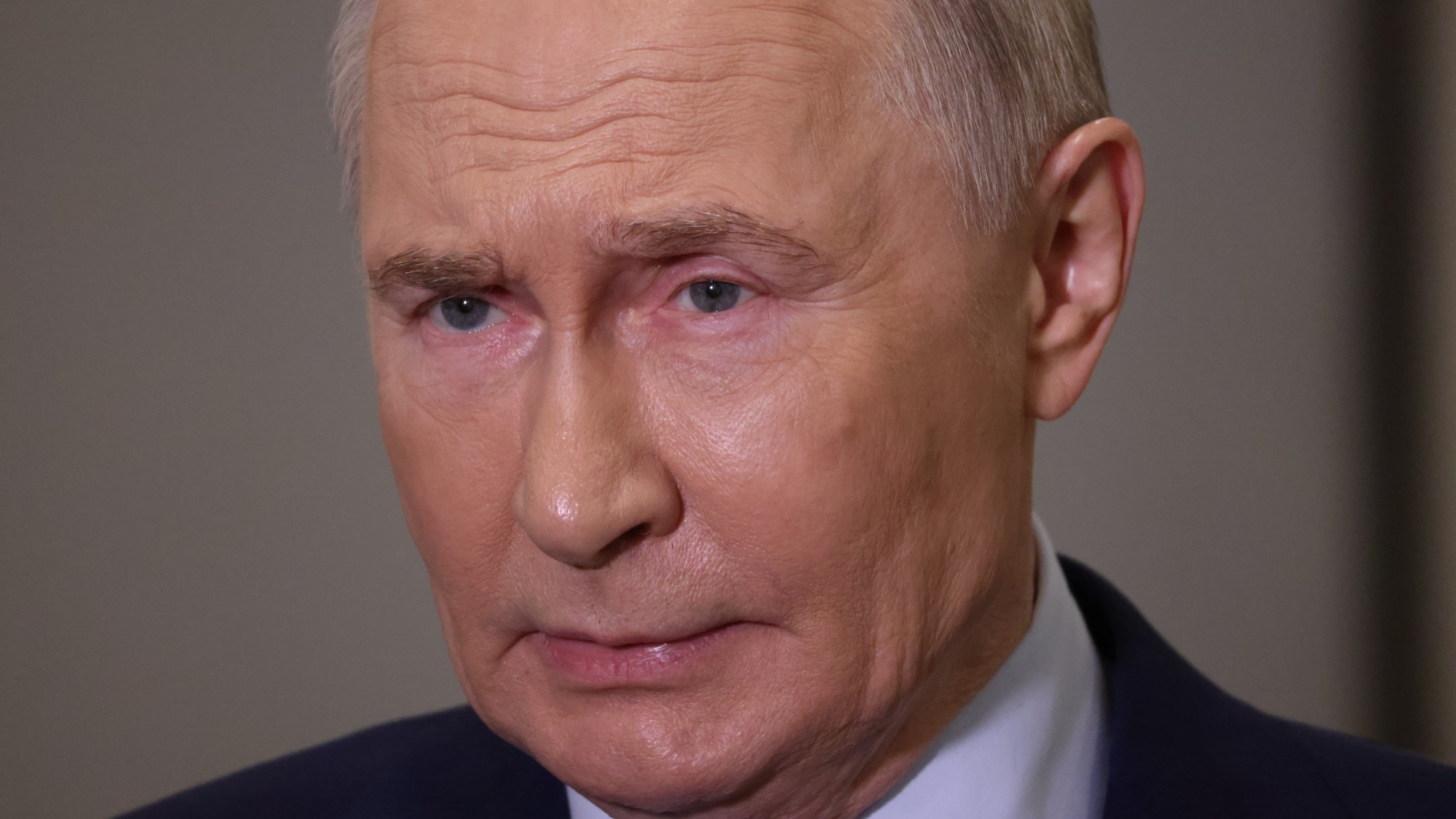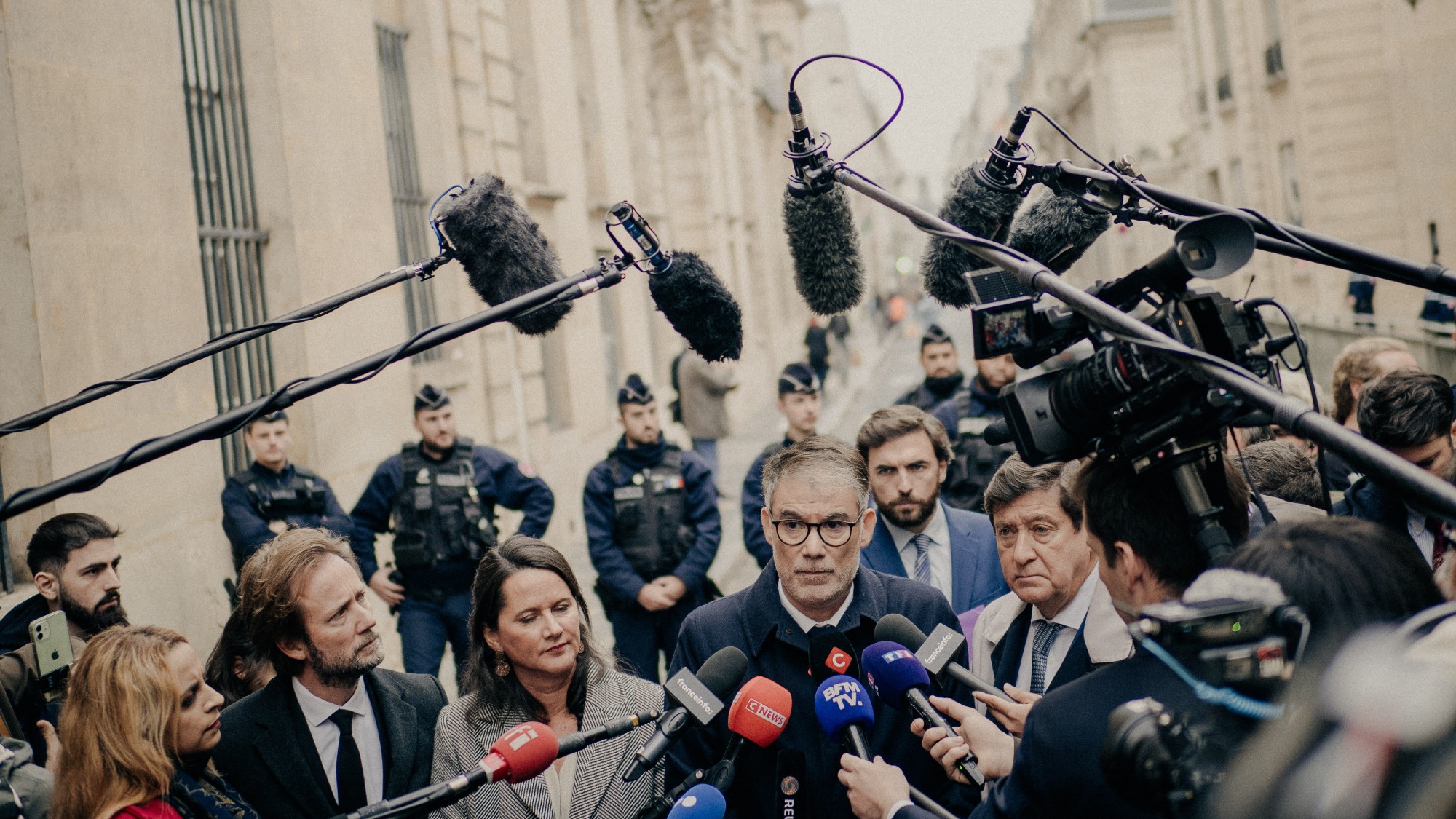UK to ‘drop out of top 10 world economies by 2030’
Standard Chartered predicts China and India will overtake US, with Britain dropping off the top table entirely

A free daily email with the biggest news stories of the day – and the best features from TheWeek.com
You are now subscribed
Your newsletter sign-up was successful
China and India will overtake the US as the world’s largest economies by 2030, with the UK falling out of the top ten entirely, according to a major new report by Standard Chartered.
Using a combination of purchasing power parity (PPP), exchange rates and nominal GDP, analysts at the bank predict China will most likely become the world's biggest economy by some point in 2020.
Experts are divided on whether GDP by PPP, which accounts for diverging purchasing power between rich and poor countries, is a better indicator of economic wellbeing compared to simple market exchange rates.
The Week
Escape your echo chamber. Get the facts behind the news, plus analysis from multiple perspectives.

Sign up for The Week's Free Newsletters
From our morning news briefing to a weekly Good News Newsletter, get the best of The Week delivered directly to your inbox.
From our morning news briefing to a weekly Good News Newsletter, get the best of The Week delivered directly to your inbox.
“Some economists argue market exchange rates give a better indication of the relative importance of national economies in the global trade and financial system”, says Ben Chu in The Independent, “but other economists argue that PPP gives a better indication of shifts in a developing country’s domestic consumer demand.”
By using PPP, Standard Chartered have estimated that by 2030, the size of China’s economy will be $64.2 trillion, with India’s at $46.3 trillion and the United States’ just $31 trillion.
“India will likely be the main mover, with its trend growth accelerating to 7.8% by the 2020s partly due to ongoing reforms, including the introduction of a national goods and services tax (GST) and the Indian Bankruptcy Code (IBC),” the bank said.
“India's rise will also reflect a growing trend of Asia becoming the dominant region of the planet economically speaking as the size of its output starts to match the size of its population,” says Business Insider.
A free daily email with the biggest news stories of the day – and the best features from TheWeek.com
By 2030 seven of the 10 largest economies will be in Asia. Asian GDP will account for roughly 35% of global GDP, up from 28% last year, and just 20% in 2010; the equivalent to the output of both the eurozone and the US combined.
Much of this has been driven by the rise of the global middle class, which Standard Chartered predicts will encompass a majority of the world’s population by 2020.
The big losers from this shift in the global balance of power will be historic western powerhouses. The UK and France will fall out of the top ten largest world economies altogether, with Indonesia, Turkey and Egypt taking their place.
The World Bank expects Egypt to grow by 5.6% this year, making it the fastest growing economy in the Middle East and North Africa, reports Xinhua.
“Yet assuming an uninterrupted catch-up path for poorer countries is questionable,” says Chu.
“Crises are inevitable. A few years ago many economists were projecting rapid growth in Brazil, but instead the country fell into a savage recession. One cannot rule out such a temporary reversal for China or India,” he writes.
Standard Chartered’s top 10 economies by nominal GDP using PPP in 2030 (in trillions of dollars):
1. China $64.2
2. India $46.3
3. US $31.0
4. Indonesia $10.1
5. Turkey $9.1
6. Brazil $8.6
7. Egypt $8.2
8. Russia $7.9
9. Japan $7.2
10. Germany $6.9
-
 6 of the world’s most accessible destinations
6 of the world’s most accessible destinationsThe Week Recommends Experience all of Berlin, Singapore and Sydney
-
 How the FCC’s ‘equal time’ rule works
How the FCC’s ‘equal time’ rule worksIn the Spotlight The law is at the heart of the Colbert-CBS conflict
-
 What is the endgame in the DHS shutdown?
What is the endgame in the DHS shutdown?Today’s Big Question Democrats want to rein in ICE’s immigration crackdown
-
 Blinkit: India’s 10-minute delivery app
Blinkit: India’s 10-minute delivery appUnder The Radar Market pressures and rider unrest are casting a shadow over leading player
-
 Gopichand Hinduja and the rift at the heart of UK’s richest family
Gopichand Hinduja and the rift at the heart of UK’s richest familyIn The Spotlight Following the death of the patriarch, the family’s ‘Succession-like’ feuds are ‘likely to get worse’
-
 Will latest Russian sanctions finally break Putin’s resolve?
Will latest Russian sanctions finally break Putin’s resolve?Today's Big Question New restrictions have been described as a ‘punch to the gut of Moscow’s war economy’
-
 French finances: what’s behind country’s debt problem?
French finances: what’s behind country’s debt problem?The Explainer Political paralysis has led to higher borrowing costs and blocked urgent deficit-reducing reforms to social protection
-
 Why Spain's economy is booming
Why Spain's economy is boomingThe Explainer Immigration, tourism and cheap energy driving best growth figures in Europe
-
 US charges Indian tycoon with bribery, fraud
US charges Indian tycoon with bribery, fraudSpeed Read Indian billionaire Gautam Adani has been indicted by US prosecutors for his role in a $265 million scheme to secure solar energy deals
-
 India's lengthening working week
India's lengthening working weekUnder The Radar Fourteen-hour work days, meetings during holidays, and no overtime are just part of the job in India's workplace culture
-
 'Super Mario' to the rescue: can Draghi fix Europe's economy?
'Super Mario' to the rescue: can Draghi fix Europe's economy?Today's Big Question Former central bank boss calls for more innovation and investment – but faces 'too many moving parts for a straightforward fix'